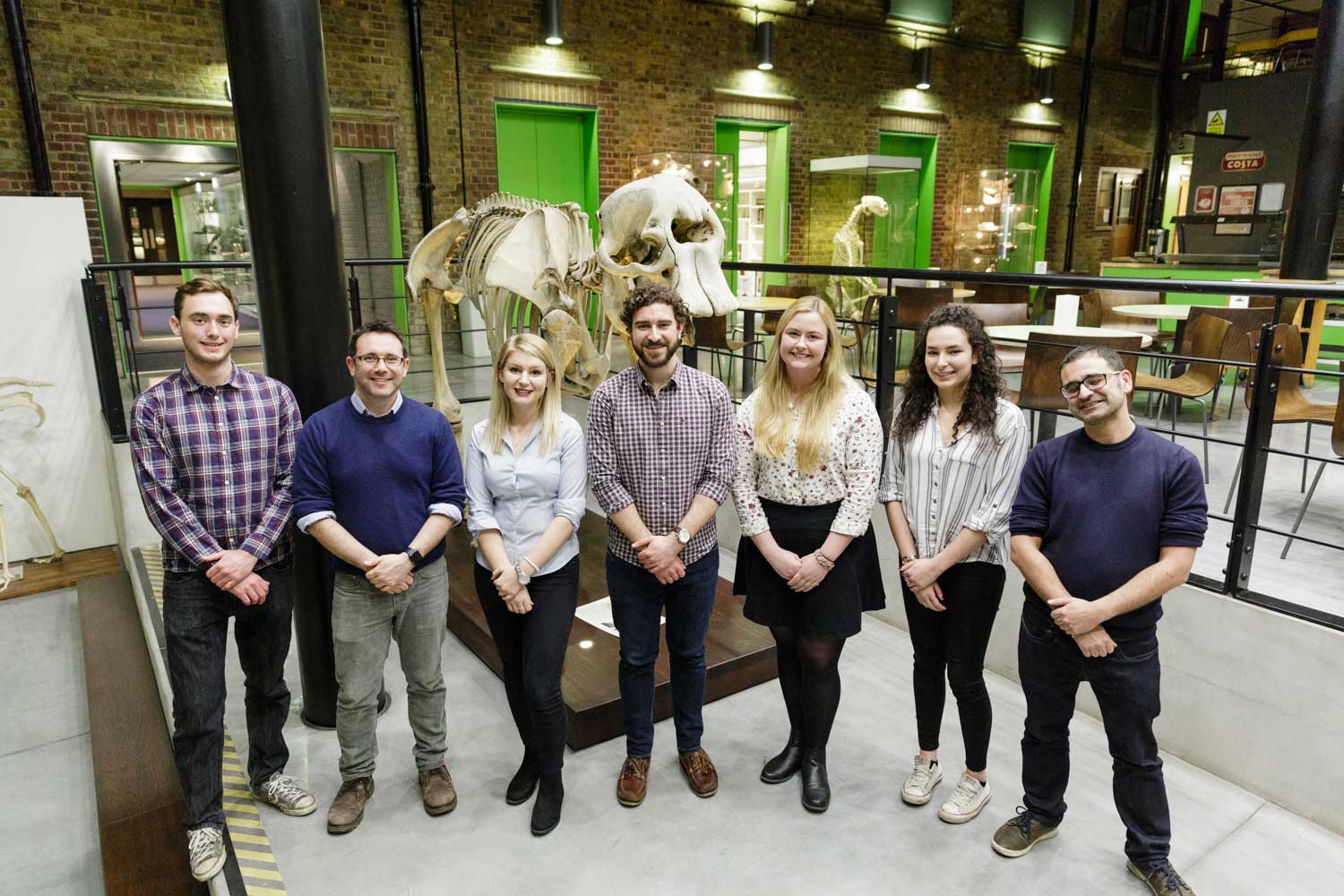Another year, another January has passed and that means our annual essay competition together with the Royal Veterinary College (RVC) went ahead and another great evening in London was spent choosing the worthy winners! This year’s essay question revolved around the very current topic of Brexit and how animal welfare in Britain might be affected as a result of leaving the EU. As usual, the essay question was a challenge but the winners definitely rose to it and presented some very interesting arguments
We at Global Nomadic are as always very proud to support this event and witness the extraordinary passion and knowledge displayed by the students at the RVC.
We invite you to read 6 of the entries below, and add your comments and views on this very interesting discussion. You can also continue the conversation on our Facebook Group.
- Louise Dunby – 1st place
- Rebekah Wright – 2nd place
- Sam Price – 3rd place
- Ruth Holwell
- Chelsey Betts
- Jonathan Chantrey
Louise Dunby – 1st Prize winner of 1 week on the Veterinary Internship in the Cook Islands
 On the 23rd of June 2016, a 52% majority of voters chose for the United Kingdom to leave the European Union (BBC news, 2016). This decision is set to massively impact the public domain, from health and safety to workers rights, however a subject often overlooked during the leave campaign was how this decision will affect animal welfare. At present an estimated 80% of UK animal welfare legislations originate from the EU (RSPCA, 2016a), and although specific legislation set at national level such as the Animal Welfare Act (2006) and the Hunting Act (2004) will remain unchanged, many of the welfare friendly laws and regulations we have in place, including the way in which farm animals are reared, produced, transported and slaughtered are not a part of this (Bowles, 2016). Furthermore, these EU legislations include the protection of wildlife and birds, the inspection of animals kept in zoos, and consumer information with regards to labelling of food products. Nine EU laws regulate the use of animals in research, covering the breeding and use of animals for science, the prohibition of the marketing and the import of cosmetics products testing (RSPCA, 2016b). These laws commit the EU and Member States to pay full regard to the welfare requirements of animals, while respecting other legislation and customs, particularly in relation to religious and cultural traditions (Gittins, 2016). So the question is, with the UK now set to Brexit will these laws be changed, and if so how will this impact animal welfare?
On the 23rd of June 2016, a 52% majority of voters chose for the United Kingdom to leave the European Union (BBC news, 2016). This decision is set to massively impact the public domain, from health and safety to workers rights, however a subject often overlooked during the leave campaign was how this decision will affect animal welfare. At present an estimated 80% of UK animal welfare legislations originate from the EU (RSPCA, 2016a), and although specific legislation set at national level such as the Animal Welfare Act (2006) and the Hunting Act (2004) will remain unchanged, many of the welfare friendly laws and regulations we have in place, including the way in which farm animals are reared, produced, transported and slaughtered are not a part of this (Bowles, 2016). Furthermore, these EU legislations include the protection of wildlife and birds, the inspection of animals kept in zoos, and consumer information with regards to labelling of food products. Nine EU laws regulate the use of animals in research, covering the breeding and use of animals for science, the prohibition of the marketing and the import of cosmetics products testing (RSPCA, 2016b). These laws commit the EU and Member States to pay full regard to the welfare requirements of animals, while respecting other legislation and customs, particularly in relation to religious and cultural traditions (Gittins, 2016). So the question is, with the UK now set to Brexit will these laws be changed, and if so how will this impact animal welfare?
Of the 44 EU legislations, 13 are Directives, which have already been employed into existing UK legislation. The remaining 31 laws are regulations and decisions, which, although currently applicable, may be automatically removed once article 50 is finalised in Spring 2019 unless Parliament legislates for them to remain (RSPCA, 2016b). The UK is a well-developed, advanced country often thought to be a leader in animal welfare; In 1822 Britain became one of the first countries to pass any form of protective legislation for farm animals (Rayner, 2016). Brexit now allows the UK to be free from the constraints of the EU, and the country will theoretically now be able to raise its animal welfare standards whilst protecting UK farmers by banning lower welfare imports (Stevenson, 2016). So Brexit can only be a positive change for animal welfare, surely?
Several groups argue that by leaving the EU, the UK has increased freedom to set higher standards for animal welfare (Chiorando, 2016). In 2015, British farmers received £3.5 billion in subsidies from the EU and although 10% of this was used to help improve conservation and protect habitats, less than 0.1% was used to directly help animal welfare (Bowles, 2016). Agricultural minister George Eustice argues that as an independent country, we can now redirect existing EU grants to farmers, subsiding higher welfare systems in British farming by introducing animal welfare assurance schemes, and therefore prevent being financially undercut by foreign farms operating to weaker standards (CASJ, 2016). Firmer welfare measures could prohibit non-stun slaughter of farm animals, which is already prohibited in three other EU countries, and implement mandatory CCTV in slaughterhouses (RSPCA, 2016a). Furthermore, at present, EU rules prevent the UK from banning the live export of farm animals or the importation of some products that are no longer produced in the UK for ethical animal welfare reasons, such as fur. As a self-governing country post Brexit, we may be able to restrict these importations that have been produced at lower welfare standards. (CASJ, 2016).
However, there are also opposing views about how this change may impact animal welfare. Despite the UK’s long standing reputation as a leader in animal welfare, recent positive initiatives have been led by other countries such as Germany, Denmark and the Netherlands, without UK involvement (Stevenson, 2016). In some instances the UK has in fact lobbied against EU moves to improve animals’ welfare. An example of this is UK government opposition to a proposed ban on the importation of products from cloned farm animals (Defra, 2013). Similarly, it was the EU that introduced a ban on the sale of animal-tested cosmetics in 2013, whilst the UK government fails to follow EU rules on animal experimentation by ignoring required limits on pain and suffering (CASJ, 2016). Additionally, other developed countries not part of the EU including the USA and China have far fewer restrictions on what farmers are allowed to do, and more cost effective measures such as intensive factory-farming are more popular, resulting in cheaper food, but poorer conditions (Wedderburn, 2016). It is acknowledged that UK governments are reluctant to implement higher standards with farm animal welfare due to the competitiveness of the industry (RSPCA, 2016a). This may mean that our subsidies could be used to help large scale, less welfare friendly intensive farming. Furthermore, The RSPCA affirms that when the UK leaves the EU, it will be unable to ban live exports and fur products because of the need to adhere to EU rules to be able to carry on trading and adhere to World Trade Organisation rules (RSPCA, 2016c). Conversely, some organisations believe that the loss of the UK input at the negotiation level could have an adverse impact on the pace and scope of future EU animal welfare legislations. Without the UK’s input, non-stun slaughter may become more accepted and further improvements in welfare may stall (Gittins, 2016).
In conclusion, we cannot say at this point what Brexit really means for animal welfare. Leaving the EU presents an exciting opportunity for the UK to improve standards and bring in positive new regulations. However, we must also remember that Brexit could lead to a decline in animal welfare, with the demand for quick and profitable trade deals decreasing quality and standards as the UK seeks to continue relations across the world. Furthermore, if the UK no longer has its say on further EU welfare regulations, will animal welfare lose out to globalisation? Only time will tell.
Rebekah Wright – 2nd prize winner of 1 week at the Wildlife Rehabilitation project in Guatemala
 The vote to leave the EU has caused upset among many in Britain, and there is no doubt that once Brexit comes into effect, that there will be changes, so what will this mean with regards the animal welfare?
The vote to leave the EU has caused upset among many in Britain, and there is no doubt that once Brexit comes into effect, that there will be changes, so what will this mean with regards the animal welfare?
The UK is governed by two groups of laws, those set on a National level and on an EU level. National laws, enforcing the restrictions on tail docking and hunting for example, such as the ‘Animal Welfare Act’ (England and wales) and the ‘Welfare on Animal Acts’ (NI) (Wedderburn 2016) will predictably remain unchanged, however all EU laws from the past 42 years, of which there are round forty-four (Wedderburn 2016), will be up in the air regarding what to still enforce and what to change.
The main animal welfare legislations of the European Commission focus on farm animal welfare (over seventeen laws), animal transport and animal slaughter for consumption (European Commission 2016). Britain has been a very prominent figure in decisions encompassing these factors. It is a concern that once we leave, the regulation of these laws that improve farm animal lives, could slacken in favour of generating more affordable produce, especially when it is predicted that EU countries could become less desirable with global trade markets post Brexit, hence resulting in a strain on their economy (Irwin 2015). Perhaps the same can be said for UK farm animals in the less likely event that they cannot sustain equivalent subsides that farmers have previously received from the EU, which was €3.5billion alone in 2015 (Wedderburn 2016). However it is more probable that subsides will be provided, as the government has agreed to match them until 2020 (Robertson 2017), and that welfare will be increased even more so (Bullion and Monbiot 2017). An RSPCA poll shows 8/10 people want increased welfare in UK farming and production, for example; calls to introduce CCTV into abattoirs (Green 2017). Another matter that could be improved within the UK is to reduce the periods of time animals can be in transit and to enforce more stringent labelling of meat and produce origins. Unfortunately it may become worse in EU countries if Britain has no influence anymore, particularly for equines, where there have already been many cases of terrible conditions and illegal transportation and slaughter and for living conditions of egg laying poultry.
Twelve laws govern the welfare of wildlife in the UK, and are either independent or part of international treaties, the UK is obliged to continue following the treaties’ guidelines involving the banning of capturing wild fowl, monitoring the transport of endangered species through the UK and zoo and fishing requirements. Britain is also a member of the UN CITES and OIE (Bowles and Williams 2016), therefore welfare standards will be retained if not improved, and the UK can continue to be involved with global animal welfare decisions.
Animal Testing is unfortunately an area in which Britain is still a prominent user, in comparison to other EU countries. Concerns have been raised that this could become more severe upon leaving the EU, despite Britain previously being at the forefront of some major EU welfare decisions such as banning the use of apes in testing. Britain will need to follow the lead of other countries who are taking measures to reduce testing, such as those already using 3D skin cultures instead of live animals (Jeory 2016), if the UK is to continue moving forward and act as an advocate for animal welfare.
In conclusion, I feel that there will be mass changes occurring for Britain and Europe in the coming years, but animal welfare and protection in Britain will hopefully be one of the factors that actually improves. There will be a lot of pressure on the government to listen to the various animal charities and welfare groups, and indeed the general public. I believe the UK is a powerful nation and needs to set an example for others to look up to and follow, perhaps then there will be less reason to worry about Europe letting welfare drop if they can see that the UK is still maintaining high standards for animals despite the difficult circumstances.
Sam Price – 3rd prize winner of a free Placement Support Package to any of our projects
 The historic referendum which saw Britain leave the EU sent shockwaves around the continent. For most people, the main concern post Brexit relates to money. How will mortgage payments be affected? What will happen the cost of holidays abroad? These are some typical questions people are seeking answers to.
The historic referendum which saw Britain leave the EU sent shockwaves around the continent. For most people, the main concern post Brexit relates to money. How will mortgage payments be affected? What will happen the cost of holidays abroad? These are some typical questions people are seeking answers to.
Sadly, the effect of Brexit on our animals has received little attention. During EU membership, Britain has emerged as a world leader in animal welfare standards. Under legislation set out by the EU, Britain has abolished testing of animals for cosmetic products, phased out individual sow crates and banned conventional cages for laying hens. Given such achievements, it worrying to consider the impact leaving the EU could have on future standards of animal welfare in Britain.
Perhaps the primary threat will be a loss in funding provided by the EU. Currently, the EU provides up to 50% of the national government cost for the eradication and surveillance of animal diseases including TB, salmonella and avian influenza. In the face of an ever changing world, with a rapidly expanding transport network and issues such as the antimicrobial resistance crisis, there is much uncertainty as to when the next outbreak will occur and without financial backing from the EU, such an outbreak could be disastrous to animal welfare.
As a global food and drink exporter, Britain is heavily reliant on the establishment of trade deals to facilitate overseas sales. Those in place with other member EU states represent perhaps the most important, generating £9.37 billion per year, over 50% of Britain’s total export income. Membership of the EU has enabled this degree of exportation through involving minimal bureaucracy for the establishment of trade deals with other member states.
To continue with current levels of exportation to Europe, it’s likely that Britain will need to comply with existing EU regulations despite having no influence on their criteria. Without the ability to negotiate and introduce lacking animal welfare legislation, such as harmonised standards for dairy cows, it could lead to reduced standards of welfare in Europe to facilitate increased production. In order to remain competitive within the European market, the UK farming sector might also be forced to also reduce its welfare standards.
Opting out of EU membership does, however, present opportunities for the improvement of welfare standards in Britain. For the farming sector, trying to carry out simple tasks can be frustratingly complicated. From the number of annual farm inspections to the dimensions of EU billboards farmers are forced to put up. As an independent nation, the likes of organisations such as DEFRA will be able to implement its own ideas to improve the health of our livestock without fretting whether they are complying with certain regulations. For example, the implementation of a new system of farm subsidies could provide increased income to farmers, in turn providing more money to improve animal welfare.
Independence from the EU also presents the opportunity to improve welfare standards of domestic animals. The importation of puppies has soared to 60,000 since the EU amended the law in 2013 to allow free movement of pets into Britain. This has given rise to an 84% increase in the number of “toy” dog breeds up for rehoming after falling victim to a passing trend for ‘handbag dogs’.
Current EU legislation for the importation of pets is wide open to manipulation, with vets falsifying passport data, ineffective border controls and a lack of penalties for illegal importation. Having direct control over its importation regulations Britain can abolish the existing EU laws prone to the falsification of passport data and lacking penalties for illegal importation, offering a real chance of improving domestic animal welfare, through a reduction in ‘puppy farming’ and lowering the number of abandoned dogs.
While its clear there is a great deal of uncertainty surrounding whether Brexit will have a positive impact on our standards of animal welfare, there are clearly areas which have the potential to undergo a much needed improvement.
Ruth Holwell
 To fully comprehend the effect of Brexit on animal welfare protection, it must be understood that animals in European Union (EU) countries and worldwide are protected to a different set of standards according to the laws of the various countries but also, perhaps, due to the diversity of cultural attitudes. Traditional practices, availability of resources and standards of education all result in different prioritisation of animal welfare protection – in law and more pertinently, in practice. In the current political climate, with uncertainty around important issues as we extricate ourselves from the EU, there is concern that when Britain is no longer under EU regulation, its laws will offer less protection to its animals.
To fully comprehend the effect of Brexit on animal welfare protection, it must be understood that animals in European Union (EU) countries and worldwide are protected to a different set of standards according to the laws of the various countries but also, perhaps, due to the diversity of cultural attitudes. Traditional practices, availability of resources and standards of education all result in different prioritisation of animal welfare protection – in law and more pertinently, in practice. In the current political climate, with uncertainty around important issues as we extricate ourselves from the EU, there is concern that when Britain is no longer under EU regulation, its laws will offer less protection to its animals.
Since the result of the referendum, there has been little promised in terms of animal welfare protection and to glean understanding of the changes likely to occur, the attitude of the British government and that of the remaining EU officials must be analysed. In 2010, the Conservative and Liberal Democrat coalition government implemented an end to ‘gold-plating’, the practice of improving on minimal EU regulations in UK legislation. This change exemplifies the larger attitude of the government as it pursues a ‘deregulatory agenda’, scrapping statutory codes in favour of industry codes, potentially disregarding established standards of animal welfare for economic advantage. Critical bodies, such as the RSPCA, are concerned that this deregulatory agenda will weaken animal welfare enforcement and that careless practice will go unchecked, resulting in harm to animals. It is disputable whether the authority given to the industry is of such importance to cause significant damage to welfare, however the government handing over any such responsibility casts a disturbing light on political attitudes to animal welfare protection.
Without prioritisation within mainstream British politics and without regulation from the EU, farm animals, pets and wildlife alike are at risk as Britain reviews its laws post Brexit. It is known that the EU has ensured strident enforcement of animal welfare, with around 80% of Britain’s animal welfare laws originating from EU regulations. Britain has a history of leading the movement for better welfare, for example banning the veal crate and sow stall in 1990, years before the rest of the EU, however, recent initiatives have been led without the support of the UK. Indeed the UK has lobbied against certain animal welfare improvements such as the ban on the importation of products from cloned farm animals. The government’s loss of interest in animal welfare protection suggests that Britain leaving the EU will have no particular impact on the standards of the remaining EU countries and that it is Britain itself that will suffer from disinterest in maintaining and developing standards.
Leaving the EU does give Britain the freedom to advance its animal welfare protection, although while theoretically Britain can implement laws to improve its standards, EU and WTO (World Trade Organisation) rules will still apply, hampering potential animal welfare initiatives such as the ban on live exports – a campaign that relies heavily on the support of the EU for implementation and enforcement. The influence that Britain will have in said rules is unknown, so current discussions and the trade deals made are of paramount importance to animal welfare and rely on the attitude of the British government towards that.
It is important to remember that the government’s attitudes largely reflect those of its people, and while the World Animal Protection Index labels the UK grade A for overall animal welfare, it scores poorly for ‘education on animal care and protection’ so it could be suggested that the recent loss of interest in animal welfare is as a result of poor education. The protestations of a poorly educated public reap little reward, as the confusing and inadequate laws of the hunting ban demonstrate. So surely for true animal welfare improvements post-Brexit, petition for a better education in the subject would reap long term benefits, as the British people and their government review its management, avoiding the potential for damaging change and upholding its long term legacy of animal welfare improvements.
Chelsey Betts
 The 23rd June 2016 saw a historic moment when the British people voted to controversially leave the European Union and venture out into the unknown. Once Article 50 is triggered the government will need to decide which, if any, EU laws they will keep over a range of areas, including animal welfare. Currently, there are forty-four EU laws protecting animal welfare, thirteen of these are already implemented into British legislation so Brexit will have no effect on these. However, the remaining thirty-one laws have been applicable in the UK without specific legislation and once Britain leaves the EU these will no longer be valid, it will therefore, be down to the post-Brexit government as whether to scrap or incorporate these into British law (Wedderburn, 2016). Depending on the government on the day this could either be detrimental to animal welfare in the UK or could be an opportunity for further improvement to the present legislation that protects our animals.
The 23rd June 2016 saw a historic moment when the British people voted to controversially leave the European Union and venture out into the unknown. Once Article 50 is triggered the government will need to decide which, if any, EU laws they will keep over a range of areas, including animal welfare. Currently, there are forty-four EU laws protecting animal welfare, thirteen of these are already implemented into British legislation so Brexit will have no effect on these. However, the remaining thirty-one laws have been applicable in the UK without specific legislation and once Britain leaves the EU these will no longer be valid, it will therefore, be down to the post-Brexit government as whether to scrap or incorporate these into British law (Wedderburn, 2016). Depending on the government on the day this could either be detrimental to animal welfare in the UK or could be an opportunity for further improvement to the present legislation that protects our animals.
According to the Animal protection index, the UK has overall one of the best ranking with regards to animal welfare. Independence from the EU gives the opportunity to further improve on this without EU interference such as the banning of live animal exports, which previously was considered a breach of EU free trade rules (Allin, 2016). Brexit could also see a shift in funding for British farmers. Currently, Britain pays more to the EU in agricultural subsidies than it receives back, with British farmers only receiving 7% of European farming grants in comparison to the 17% that French farmers receive (BBC news 2016). Outside of the EU the British government would be able to use the contribution money to directly fund the needs of the UK farming sector such as farms which raise their animals to a higher welfare standard, an example of this is with poultry farmers. A Guardian analysis found that nearly a quarter of the poultry sold in the UK comes from seven European countries. These countries allow higher stocking densities of chickens than the UK where most farmers are limited to a maximum of 28kg per square meter according to the National Farmers Union. Obviously the British farming industry relies on exporting their goods but as the public are becoming more concerned with ethically sourcing their food it would be beneficial for British farmers who often aim for higher welfare standard to be rewarded for their efforts.
Brexit could also improve the welfare of our companion animals as the government could implement stricter controls on animal movement. The recent outbreak of babesiosis in the UK was a result of animals travelling to the UK without sufficient tick prevention treatment. Previous to 2012 it was compulsory for animals to be treated for ticks in order travel to the UK but this requirement had to be scrapped in order to meet EU regulations of the Pet Travel Scheme (Gov.uk, 2011)(Weaver, 2016). An undercover investigation carried out by the Dogs Trust revealed the Pet Travel Scheme was being massively abused, where fraudulent documentation was being used to illegally smuggle puppies into the UK for sale. This jeopardises the UK’s disease control and puts the welfare of native animals at risk, due to the falsifying of vaccination records. These puppies are often smuggled in horrific conditions for long durations and are usually sold underage. A departure from the current scheme would allow for stricter control of animal movement and therefore improve the welfare of the animals involved (Dogs Trust)
In the past it has also been made evident that some EU animal welfare legislation in is ineffective. The EU tried to end “routine” tail docking in pigs but the Directive lacked clarity resulting in infraction proceedings against nine member states from failing to be abide by this ban. Recent data from the European Commission suggests that only thirteen member countries, including the United Kingdom, are fully compliant (CIWF) (D’Eath et al, 2015).
There is no denying that the European Union has achieved countless results in improving animal welfare such as banning cosmetics animal testing and recognising animals as sentient beings, it also has its limitations. Brexit would allow Britain to improve on the welfare standards already set without having to comply to other member states. Conversely, Britain would no longer be able to take leadership on animal welfare issues in Brussels and so would be less effective at improving animal welfare worldwide (Wilson, 2016). Ultimately the future of animal welfare relies on the government at the time when Britain eventually leaves the European Union. There is the potential for amazing advancements in animal welfare, but whether the government will see this as a priority at a pivotal time in British history remains to be seen. We can only hope that those in charge choose the right path and consider those that cannot speak for themselves.
Jonathan Chantrey
 As yet the Government’s Brexit negotiation objectives are unknown, meaning this subject is based around assumptions and public consensus. A recently conducted RSPCA survey1 showed that 81% of the public believe that welfare standards should be maintained if not improved, a motion further supported by the BVA in an open letter to the Government2. What we do know however, are the laws not effected by our decision to leave the EU. The laws imposed by the EU fall into 3 categories: Regulations, Decisions and Directives. Regulations and Decisions are automatically binding, but won’t stand once we leave; whereas Directives are imposed upon a member state to write into their own national law, meaning they will still stand post Brexit along with all other UK laws. This leaves areas of law vulnerable to large scale change, but if we assume public pressure drives Government direction then welfare standards won’t deteriorate, but what form will this take? Will abattoirs become more tightly regulated and monitored? What about non-stun slaughter? Disease surveillance and information sharing is an important preventative measure, will our access change? How are farmers going to cope without EU subsidies? Will the Government replace them? How will this affect the cost of food production?
As yet the Government’s Brexit negotiation objectives are unknown, meaning this subject is based around assumptions and public consensus. A recently conducted RSPCA survey1 showed that 81% of the public believe that welfare standards should be maintained if not improved, a motion further supported by the BVA in an open letter to the Government2. What we do know however, are the laws not effected by our decision to leave the EU. The laws imposed by the EU fall into 3 categories: Regulations, Decisions and Directives. Regulations and Decisions are automatically binding, but won’t stand once we leave; whereas Directives are imposed upon a member state to write into their own national law, meaning they will still stand post Brexit along with all other UK laws. This leaves areas of law vulnerable to large scale change, but if we assume public pressure drives Government direction then welfare standards won’t deteriorate, but what form will this take? Will abattoirs become more tightly regulated and monitored? What about non-stun slaughter? Disease surveillance and information sharing is an important preventative measure, will our access change? How are farmers going to cope without EU subsidies? Will the Government replace them? How will this affect the cost of food production?
How are our laws likely to change? Regulations cover many farm animal laws regarding transport, slaughter and product labelling; as well as the pet trade and research industries. Conversely many wildlife laws are covered by international treaties so cannot be altered regardless of Brexit. Whereas the animal welfare act 2006 and the Hunting act 2004 were set by UK Government and so are not at threat of change due to Brexit, these exemplify Britain’s status as a global leader in welfare standards. In 1998 the EU imposed a directive on “the protection of animals of all species kept for the production of food, wool, skin, fur or other farming purposes including fish, reptiles or amphibians”, which essentially amounts to the 5 freedoms. This was altered in 2009 with the Lisbon Treaty which introduced the recognition of sentience in animals whilst also respecting religious beliefs with regards to slaughter3. This suggests that a United Kingdom unbound by EU laws could stipulate higher welfare standards, for example improving legislation regarding non-stun slaughter.
Should non-stun slaughter be banned? Recognising sentience and the prolonged period of consciousness and pain involved in non-stun slaughter creates an ethical dilemma. To improve standards the UK has three options; maintain and improve the practice or, ban the practice with or without banning produce importation. To maintain it we must ensure stricter regulations, abattoir monitoring and appropriate product labelling. To ban the practice and importation of produce we avoid spreading demand into less regulated countries, while disenfranchising the religious communities who consume the meat. To ban the practice and allow trade, providing the producers comply with regulations, avoids excluding religious communities and influences global welfare standards. The former option seems the most likely since the last prime minister pledged to protect the practice for the religious communities4. Currently there are no labelling requirements regarding how meat is slaughtered, leading to inadvertent consumption fabricating the level of demand, causing overproduction and an unnecessarily high level of animals suffering this practice. The ability to write our own laws presents an opportunity to improve conditions and should be recognised and acted upon as such.
Will information sharing suffer in the Brexit negotiations? Great Britain is considered a global Leader in veterinary medicine and welfare standards, disease surveillance forms a large part of the infrastructure upon which this reputation is built. Knowing when to expect a disease aids preparation or even prevention of emerging diseases. For example we are expecting to see clinical cases of Bluetongue virus and African swine fever in the near future, we would not see this coming if we did not share information with our global neighbours. Similarly during our BSE outbreak in 1986, communicating the issue and blocking trade helped prevent the spread of the disease. As our immediate neighbours, Europe presents the greatest risk of disease spread but also the most valuable information sharing resource, communicating this information is vital to prevent unnecessary disease spread and suffering.
Will farmers keep their subsidies? During 2015 Britain’s farmers received an estimated €3.5billion in EU subsidies, accounting for 50-60% of their annual income. If we assume the Government compensates for this after we leave the EU, the next concern is the impact distribution of these funds will have on farming decisions. Will it create a balance between rewarding large farms producing cheap food en mass; and small farms where product quality and animal welfare is prioritised? Will there be any subsidies? The environment secretary is yet to reassure farmers they will remain, yet without them the farming sector will almost certainly collapse.
In conclusion, a lot is unknown about how the UK will be shaped in the coming years following the referendum, but it should be viewed as an opportunity to benefit ourselves, our animals and our country.
We would love to hear your views on this discussion, what do you think? Who do you think has the best argument?
Join our Facebook Group to continue the discussion!











